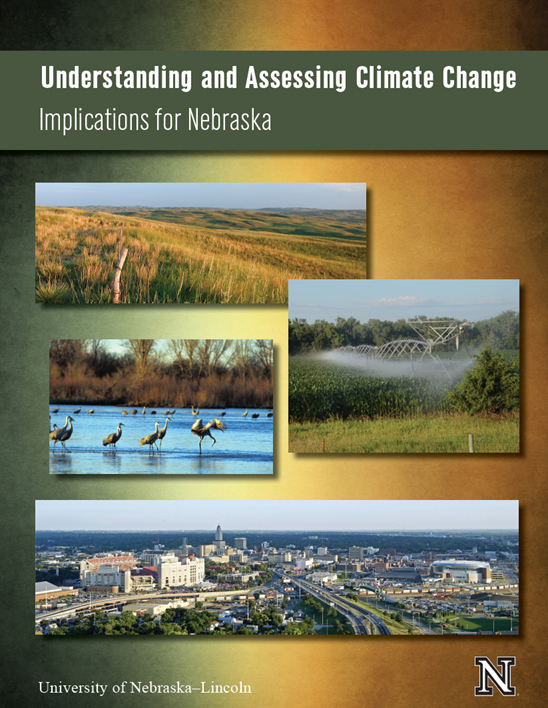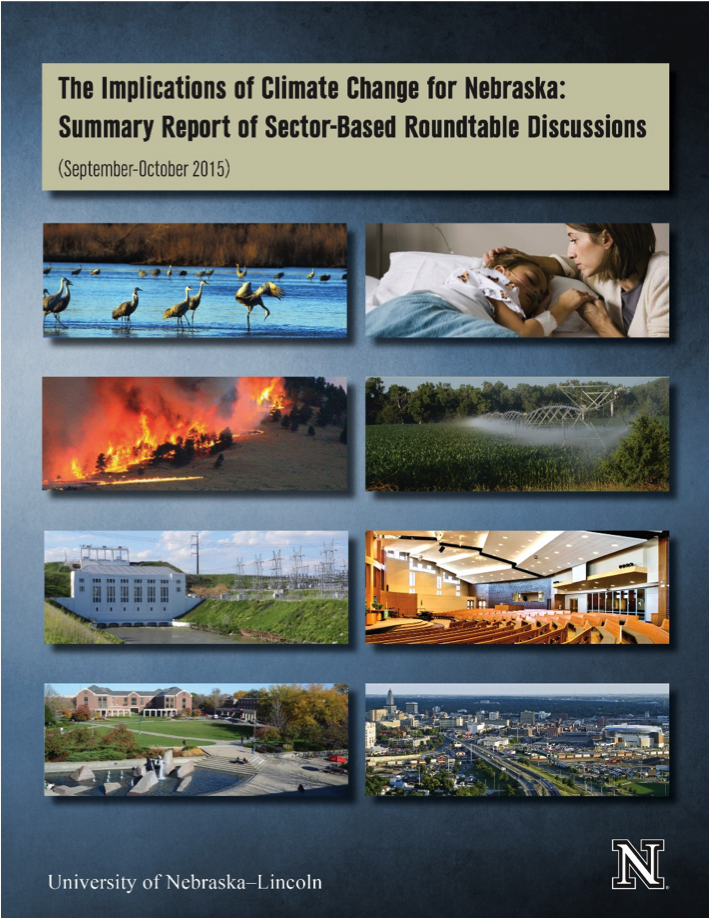Climate change poses significant risks to Nebraska’s economy, environment and citizens. There is a need for unbiased sources of information on the issue across the state. This data can inform strategies to mitigate greenhouse gas emissions and to adapt to the changing climate. Responses are needed from all sectors of life in Nebraska, from the agriculture community to the legislature, and from the corporate sector to the community organization. The applied climate science group at the School of Natural Resources provides information here on climate change impacts to Nebraska.
Key Climate Change Data for Nebraska
- Temperatures have risen about 1oF since 1895
- Frost-free season has increased 5-25 days since 1895
- Very heavy precipitation events have increased 16% in the Great Plains Region
- Projected temperature increase of 4-5oF (low emissions scenario) or 8-9oF (high emissions scenario) by 2100
- Projected summer of 2100 will have 13-25 days over 100oF
- Number of nights over 70oF will increase by 20-40 days by 2100
- Soil moisture is projected to decrease 5-10% by 2100
- Reduced snowpack in Rocky Mountains = reduced streamflows in our rivers
- Increasing heavy precipitation events
- Increasing flood magnitude
- Increasing drought frequency and severity

